Disability: Woman denied social housing because of age
- Published
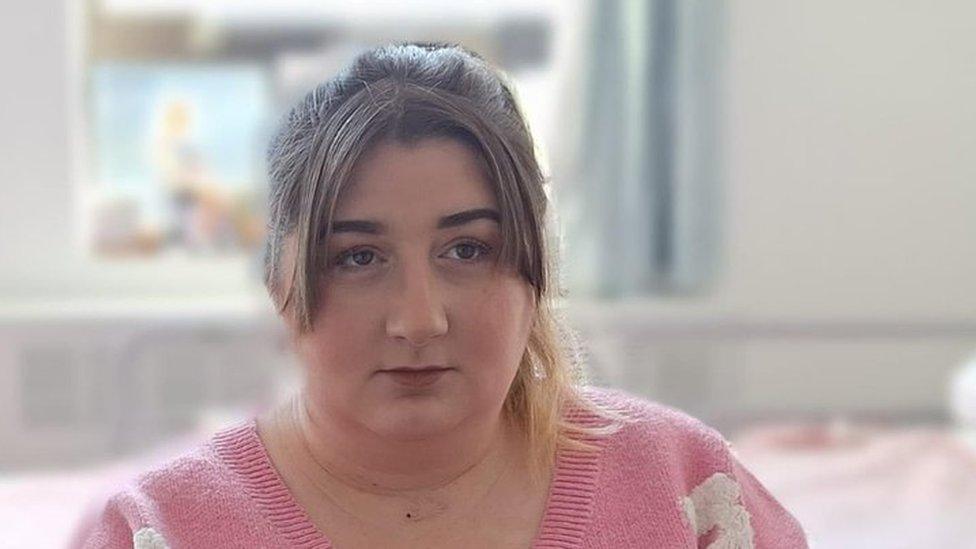
Sophie Shuttleworth said she feels she is stuck in "limbo" while in hospital
A woman who has been stuck in hospital for 16 months due to a lack of accessible social homes says she is "in limbo".
Sophie Shuttleworth, 32, from Newport, became paralysed after developing meningitis in July 2022.
Social properties with the adaptations Sophie needs have become available, but they have been reserved for people over 55.
Newport council said it was doing all it could to find Sophie a home.
Freedom of information (FOI) requests to all of Wales' 22 local authorities showed a gap in accessible housing stock data.
Sophie was a beautician and graphic designer, but her life changed forever when she woke up one morning unable to move.
She was admitted to The Grange University Hospital with suspected sunstroke but later diagnosed with viral meningitis and put into an induced coma.
The virus attacked her spinal cord and paralysed her.
When she awoke three weeks later, she needed a wheelchair.
After eight months of rehabilitation, Sophie was well enough to leave hospital in March - but she had nowhere to go.

When Sophie woke up from an induced coma, she needed a wheelchair
She registered for social housing in March but was told it could be a 40-week wait.
Before her illness, Sophie was living with family to save money for a mortgage.
But the house has steps and is not wide enough for her wheelchair, meaning she cannot move back.
Three hospitals and 471 days later, she is still homeless, and now a patient at St Woolos Hospital in Newport.
"I'm bed blocking somebody now who does need medical attention because there's nowhere for me to live," she said.
"It's ridiculous and shouldn't be this hard to constantly be having to jump through hoops when I can't even stand."
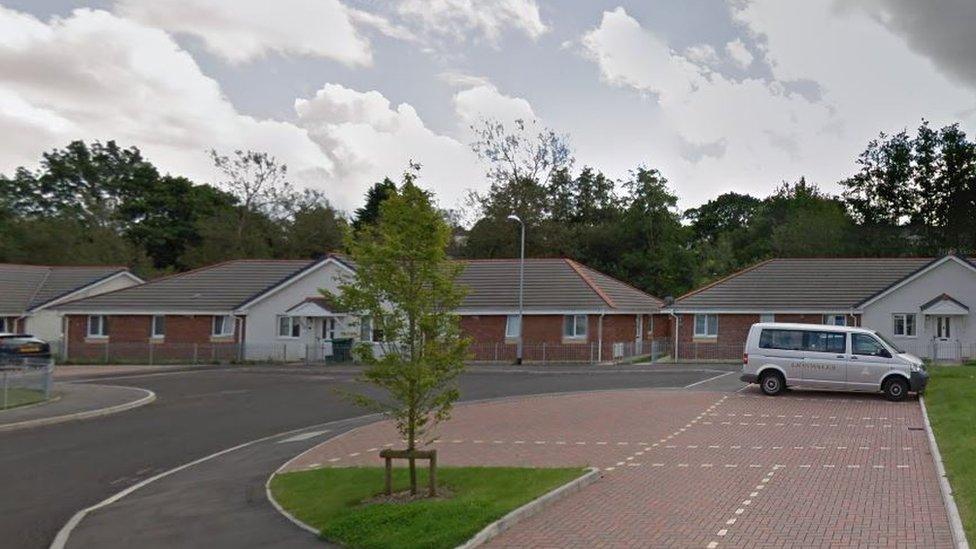
Brookside bungalows in Newport require residents to be aged 60 or over
Sophie said her "heart sinks" every time she sees a property that "would be perfect" but is reserved for people aged 55 and 60.
She needs a ground floor property with wide halls and doors, low kitchen counters and a wet room.
She said it felt like being discharged was "getting further away" because the council could not "magic up the stock", adding that she felt "discriminated against" by the system.
"I feel so abandoned by local authorities and stuck," Ms Shuttleworth said.
Newport City Council expressed "every sympathy" with Sophie and said it was "doing everything" it could "to find a property that can be adapted to meet her needs to enable her to leave hospital".
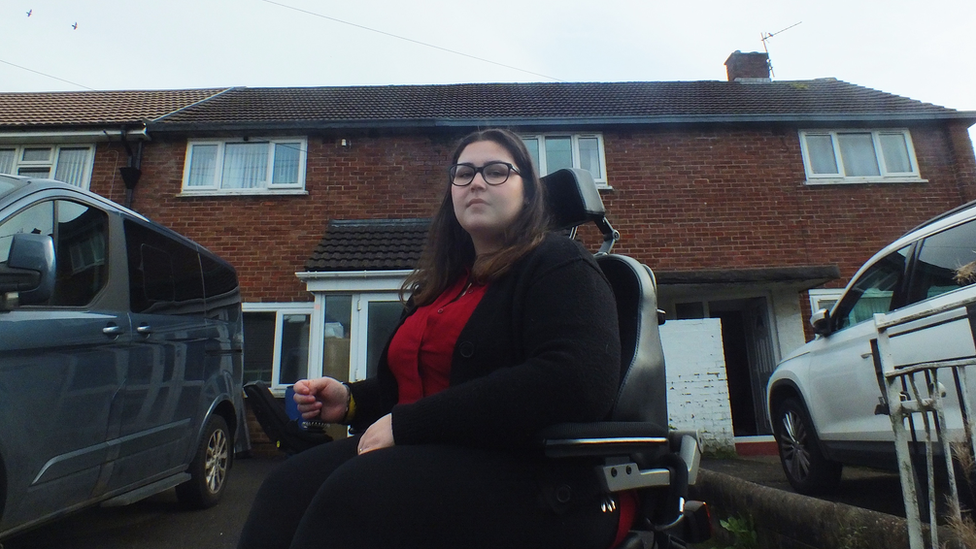
Holly Greader said disabled young people have the same needs as disabled older people
Holly Greader, 25, from Cardiff, also applied for social housing but found she was not eligible for many properties due to her age.
She lives with chronic pain and hypermobility syndrome, which means she needs a range of accessibility equipment including a powered wheelchair.
She was initially put on the social housing register in 2020 but "was told by multiple people in Cardiff council that bungalow houses were reserved only for the elderly".
She said she felt "discriminated against" and believed older people were being prioritised over young disabled people.
Holly and her partner found themselves sofa-surfing after a deterioration of her health meant they needed to leave their privately rented house.
When she discovered age-exclusive housing she felt "angry and upset".
"It felt very wrong," she said. "I could tell there was a huge lack of understanding."
After more than two years, Holly and her partner's families chipped together to buy them a house.
Holly said this was a privilege lots of disabled people did not have.
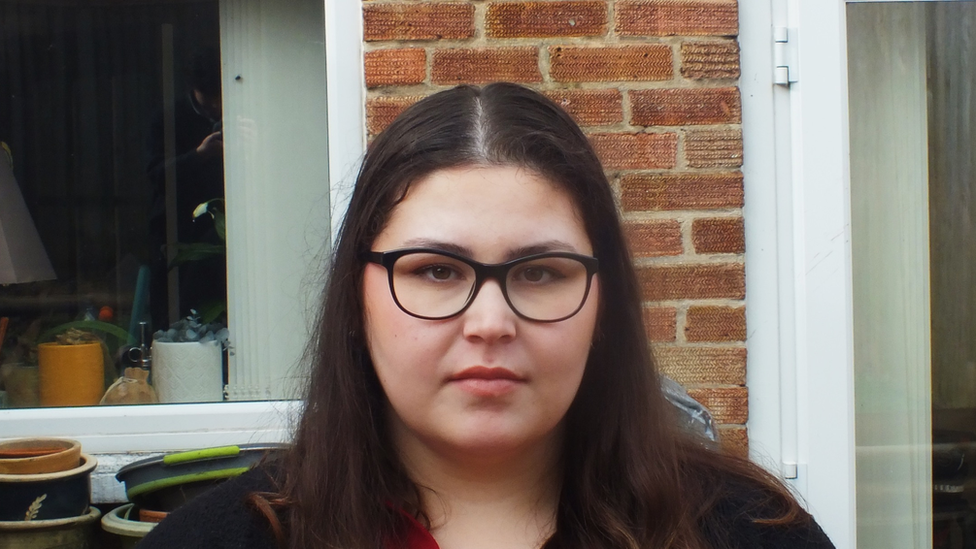
Holly Greader says she was offered one property in the two years she was on the waiting list, which turned out to be unsuitable
Alex Harrison from Disability Wales said homeownership for young disabled people could "feel like an impossible dream".
Universal credit payments are reduced if a person has savings of more than £6,000 and removed if savings reach £16,000.
"This means it can be difficult to save enough needed for a deposit," she said.
The Spinal Injuries Association said the problem was not confined to Wales.
"In the last 12 months we have seen an increase in calls to our support line from people across the country who are angry and concerned that they are in unsuitable and unsafe accommodation," a spokesperson said.
"We have heard of young people ending up in care homes alongside people with dementia because there is nothing else available."
'Severe shortage of homes'
Cardiff council said there was a "severe shortage of good quality, affordable homes in Cardiff" and that it was building new council homes to "tackle the high demand".
It said bungalows were "generally allocated to people aged 60 and over" but "fully adapted bungalows can be allocated to people of any age".
However, the council said the "availability" of these were "limited" and "rarely become available to let".
The council said Holly had been a high priority and was offered a home in May 2022 but this was declined due to Holly requiring more adaptations than were provided.
The Welsh government said it was "committed to improving accessibility in social housing in Wales".
It said it was trying to improve the allocation of accessible housing by legally requiring all local authorities in Wales to hold an accessible housing register and undertake regular reviews of it.
You can see more on this story in Wales Live, available to watch on BBC iPlayer.
- Published16 May 2023
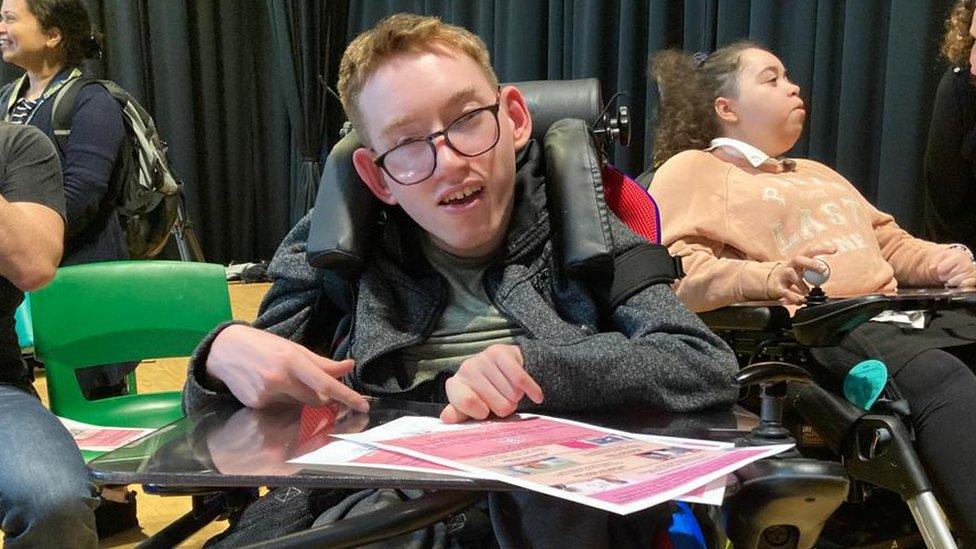
- Published30 September 2023
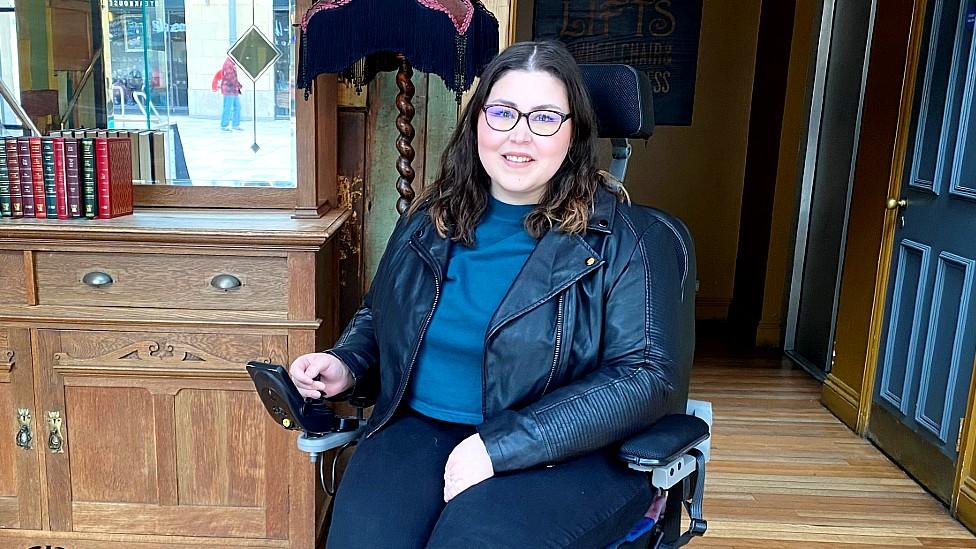
- Published26 February 2023
